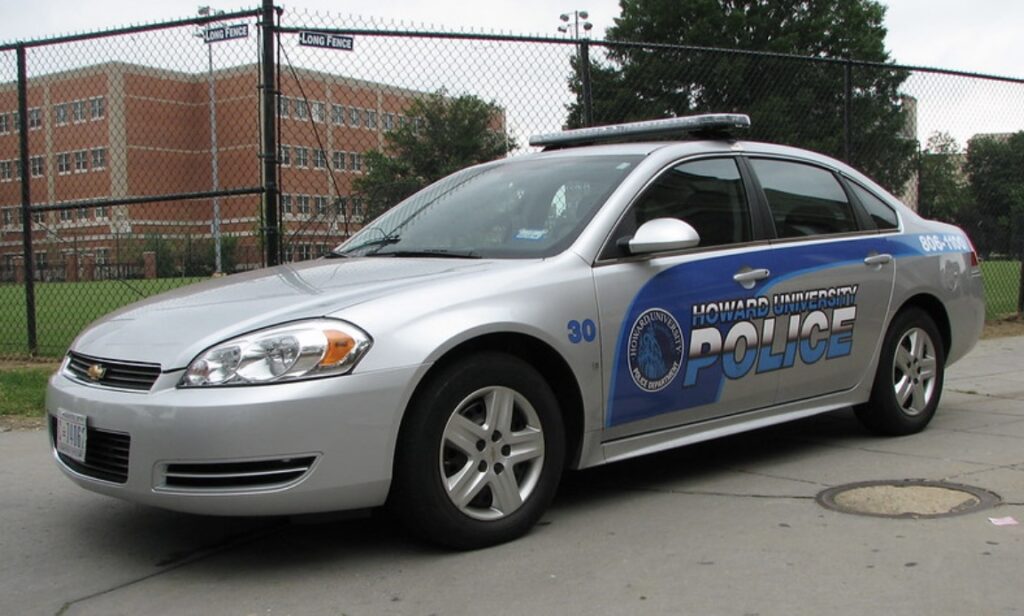
There have been at least two recent shootings on college campuses by people not affiliated with the universities. Should a similar situation occur on Howard University’s campus, the school’s Department of Public Safety (DPS) advises people on campus to Avoid, Barricade, Confront (ABC).
Last weekend, a man fired a gun at a party on the campus of Colby College and was taken into custody. No one was killed or injured. Last month, a gunman killed three students and critically wounded four others at Michigan State University. In the event of an active shooter on Howard’s campus, students, faculty and staff should follow protocol.
First, DPS recommends people to avoid coming in contact with the shooter by finding the quickest escape route. If one cannot leave, then they suggest hiding behind any large items and block entry to doors. If there is no other option, then one should confront the shooter and attempt to incapacitate them with large objects and physical aggression, according to DPS.
Jarrett Carter Sr. is a spokesperson for DPS and told The Hilltop that there is no higher priority for the administration than the safety of students and employees. The department focuses on community-based approaches to include all affiliates of Howard knowing their roles and responsibilities in maintaining safety on campus.
“The tough lesson that our country is learning is that it is difficult to physically stop a person who decides to wreak havoc on a community without regard for security measures and the lives of those who live by those rules. But what communities can do is make safety a part of the everyday lives of those members by encouraging conversation, practice and preparedness for threat events,” Carter said.
The University aims to grow awareness for campus safety through partnerships with the United States Capitol Police and Howard University Student Association. These organizations host regular active shooter training sessions for students who have anxiety and want to feel better prepared in the event of a real emergency.
Chelsea Chilewa, a sophomore majoring in television and film production, understands that the university is trying its best to prepare students. However, the Houston native thinks that it is hard to ease the minds of students who are reminded daily of how widespread the problem is.
“It’s not because of anything that Howard is or isn’t doing, I just don’t feel safe in the world. I have to trick myself into feeling safe sometimes because I get so anxious and it gets really bad which makes me not even want to go outside a lot,” Chilewa said.
Howard’s DPS also encouraged students to sign-up for Bison SAFE Mobile App to receive free emergency notifications that are available to all Howard community members. App users can quickly and discreetly contact DPS and other emergency services in the event of an active threat.
Through Bison SAFE and university communications, students have previously been notified of campus threats, including the recent bomb threat to the university radio station.
Howard University maintains relationships with local and federal public safety agencies in Washington, D.C., and hosts an annual safety fair for new and returning students to familiarize them with campus safety policies.
Destiny Cohen, a senior English major and history minor at Howard, said that she would vote “Yes” if asked whether or not she feels safe on campus.
“I feel safe on campus in regards to campus shootings, but it’s a risk everywhere you go. It feels like a relatively calm environment everyday on Howard’s campus. I guess it’s because we don’t normally see that gun violence at HBCUs,” Cohen said.
The District of Columbia’s Homeland Security and Emergency Management Agency (HSEMA) runs the Ready DC preparedness campaign, which was launched by Mayor Muriel Bowser in 2017. A spokesperson with the Metropolitan Police Department told The Hilltop that they are partnered with HSEMA in helping District residents become more prepared and resilient.
Copy edited by Jasper Smith









